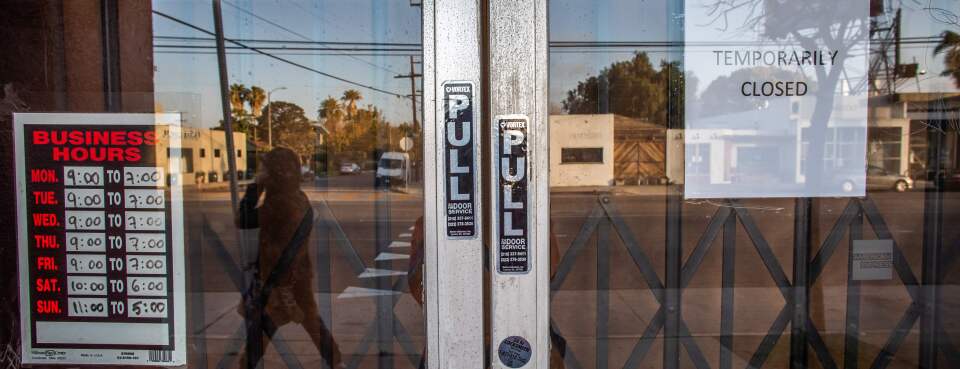
While our nation is struggling to fight the Covid-19 pandemic and witnessing the most significant protests for racial equality in the past 50 years, another crisis is growing. Our civil justice system is broken, people are not getting the legal help they need, and we need to take bold steps to help fix it.
Some 71% of low-income households had at least one civil legal problem in 2017, most receiving inadequate or no help. And the problem reaches up the income scale, affecting small businesses and the middle class, too. Nearly half of all households confronted at least one civil legal issue in the past year, but they largely lack access to legal resources to understand and protect their rights.
People seek or consider seeking a lawyer’s help for only 16% of their civil legal issues. It’s not surprising that 76% of civil cases filed in state courts nationwide involve at least one party who is representing themselves without a lawyer.
As bad as these numbers are, the public’s unmet need for legal services will balloon due to the pandemic, which will not only raise issues for millions of Americans related to health care and public services but will also present legal questions arising from the economic impacts—debt collection, contractual disputes, employment and housing being the most obvious examples.
Lack of Adequate Legal Services Falls on Economically Disadvantaged
The lack of adequate legal services will fall hardest on those who are economically disadvantaged and disproportionately on persons of color. At the same time, lawyers will be impacted as a depressed economy will further reduce the ability of people and businesses to pay for their services.
Unfortunately, in responding to this crisis, we are relying largely on outdated technology and a limited range of providers. The provision of legal services is regulated by each state (usually the state’s supreme court). In most states, only lawyers can provide legal advice and representation, no matter how simple and straightforward the problem. And in most states, lawyers cannot operate in businesses that share ownership with non-lawyers.
This regulatory regime constricts the delivery of legal services both by narrowly limiting the permissible providers and by restricting the ability of lawyers to more efficiently operate by gaining access to financial resources or marketing and technological expertise by partnering with non-lawyers.
States Are Taking Action
Now is our opportunity to bring legal services into the 21st century. Some states have already taken significant steps. Utah has approved the provision of certain legal services by “limited license technicians” and, more boldly, is moving toward approving a “regulatory sandbox” that will encourage innovation by allowing delivery of legal services by non-traditional providers, including entities partly owned by non-lawyers.
Arizona similarly is considering eliminating prohibitions on non-lawyer ownership and expanding the range of legal services providers, and its Supreme Court will act on these proposals later this summer. Both the Utah and Arizona efforts carefully promote innovation and expanded delivery of legal services while protecting consumers.
Momentum is growing. Earlier in 2020, both the Conference of Chief Justices and the American Bar Association resolved that states should consider changes in the regulation of legal services to expand their availability.
In May, the California State Bar Board of Trustees approved further study of a “regulatory sandbox” to allow nonlawyer ownership and fee-sharing.
A Connecticut State Bar task force is exploring, among other things, if alternative business structures could reduce legal costs and help lawyers practice in a more sustainable and consumer-centered manner.
Regulatory changes are also being considered in D.C., Illinois, and Florida. And IAALS, the Institute for the Advancement of the American Legal System, is encouraging and supporting reform efforts through its Unlocking Legal Regulation project.
Consistent with the CCJ and ABA resolutions, we urge court leaders—and the legal profession and the public more broadly—to embrace experimentation and reform. Such changes can both benefit the public by expanding access and encourage efficiency and innovation by law firms.
If we are going to approach our goal of justice for all, we must enlarge our view of who can provide legal services and how they do so.
This column does not necessarily reflect the opinion of The Bureau of National Affairs, Inc. or its owners.
Author Information
Justice Deno Himonas of the Utah Supreme Court co-chaired Utah’s Working Group on Regulatory Reform.
Scott Bales is the executive director of IAALS, the Institute for the Advancement of the American Legal System at University of Denver, and the former Chief Justice of the Arizona Supreme Court.
"allow" - Google News
June 29, 2020 at 03:02PM
https://ift.tt/2YIGDkF
INSIGHT: It's Time to Allow New Legal Service Providers - Bloomberg Law
"allow" - Google News
https://ift.tt/2KTEV8j
https://ift.tt/2Wp5bNh
Bagikan Berita Ini















0 Response to "INSIGHT: It's Time to Allow New Legal Service Providers - Bloomberg Law"
Post a Comment